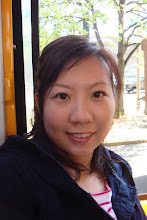In the article of “The International Review of Research in Open and Distance Learning,” Anderson also suggests that the debate of the mix right is actually fueled by the definition of interaction. Nevertheless, Daniel and Marquis (1979) later challenged distance educators to get the mixture right between independent study and interactive learning strategies and activities which they quite rightly pointed out the vary differences between these two primary forms of education.
Later Anderson tried to define interaction and value the role of interaction in Education. Anderson also broke up our traditional knowledge that when talking about the interaction in education, we always think about the interaction between students to teachers, and students to students; however, Anderson (2003) suggests that there are two more forms which are student to content and teacher to content. The above two forms, Anderson believes, will boost more deep and meaningful learning.
Reading this journal article expand my knowledge about the interaction in Education. However, I don’t quite agree with his part of the ideas. For example, the author seemed imply that the interaction between teacher-student and student-student are not work as well as student-content. However, I will say there are some unique characteristics which student-content can’t replace. For example, being a teacher, we don’t just hold a degree but we have to accumulate teaching experiences or even life experiences so that we can always inspire students’ knowledge and provide psychological comfort. However, if we just read and interact with content by our own, though we can explore more resources through multimedia, we sometimes get lost. I remember last semester, one of my instructor asked us a question which I would like to know more ideas from you all.
Q: Since the technology education era is coming, students will argue that we can just learn by ourselves. We search the internet and find out the learning materials we like. We don’t need to go to the classroom because the classes can be delivered by different multimedia such video conference, forum and etc. So, what’s the instructors’ role in classroom? And how should teachers’ role migrate from traditional classroom to technological classroom?
I made a slightly change of the question, but I will looking forward to hear your opinions!
Subscribe to:
Post Comments (Atom)

4 comments:
Hi Theresa:
From your question, I think shaping students' personality is the most important thing to learn in the traditional class. From the class, students learn to share their opinions, and feelings. Besides, they learn how to love and respect people. They interact socially with one another whose value is beyond learning on-line courses. For the teachers' role, I think no matter in the traditional class or on-line class, teachers are facilitators to help students learn actively. For example, the teacher gives suggestions, give hints, and guide students to interact with peers and contents. All these can be presented in both classes. But for on-line course, I think teachers should design courses carefully such as the explanation of the content and suitable resource. Also, providing instant feedback and answersing students' questions are important for students to learn smoothly.
Hsiao-Chi
Hi Teresa,
It is very interesting question. Cranton (2003) described the teacher’s role in the teacher-directed learning and self directed learning. In the teacher directed learning, teacher is an expert to lecture, course planner, and instructor. In the self directed learning, teacher is a facilitator to support learners, resource person provide information, and learning manager. Teacher should approach for their students differently in the traditional classroom and technological classroom. When I think about language classes, even though we have environment to learn online, technological classroom is not always better. I think that depending on the student’s age, character, language level, or purposes, we should decide which is more effective.
Tomoko
This post is from Mustafa.He had a problem post comments on my blog, so I did it for him. Thanks for Mustafa's comments.
Hi Theresa,
As you posed good question, I like it. Also you are right that “students will argue that
we can just learn by ourselves” As teachers we shouldn’t ignore the role teachers in both
classes either online or face to face. Facilitating an online class is very different
from a face-to-face class. It is different because the location of the teacher is
physically separate from the student, and information can be stored and transmitted
across time and space. When these two conditions are not present, teachers tend to see
their primary role as an information provider.
Mustafa
Hello Theresa,
This is an interesting question. For a current online instructor like me, I do try hard to raise all kinds of interactions as much as I can, and with all kinds of technology we can use. I believe as long as we want, we can make learning experience optimal, even in online courses.
One thing is that we have many kinds of online learning styles, and teaching methods have to be adjusted based on the different forms (such as real-time, asynchoronous, or blended learning which Dr. Bonk must have introduced to you) and student needs, so online classes do have more challanges. Again, if we don't confined ourselves saying that "this is online so we can't do..." but to do our best to improve it, I believe we can still have meaningful online learning experiences.
chien-han
Post a Comment